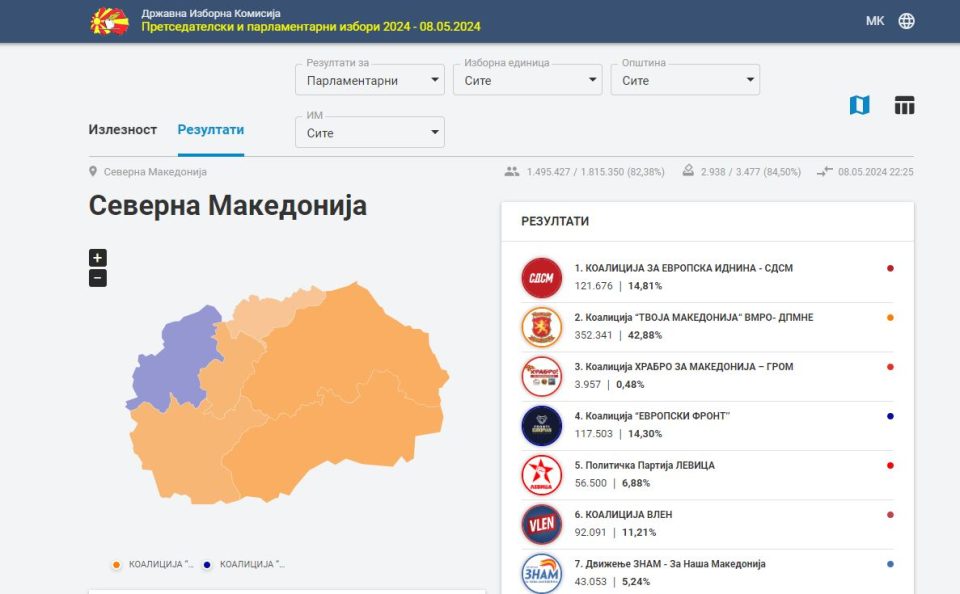With 82 percent of the vote counted, the results from the State Electoral Commission confirm that VMRO-DPMNE scored a historic win over SDSM. The conservative party has over 350,000 votes, while SDSM is barely over 120,000. The historic worst result for SDSM was just over 200,000 votes, in 2008, and the party now faces dipping below the 200,000 barrier.
Most of the votes that are yet to be counted are in the east of Macedonia, where VMRO is a strong favorite over SDSM. The projection of Parliament seats shows VMRO at 59, just two shy of full majority in Parliament that would be sufficient to form a Government outright, without even needing to seek support from other coalition partners. SDSM is down to 18 seats – a number that is expected to improve slightly, at the cost of the two main Albanian blocs DUI and VLEN, who currently are projected to win 19 and 13 seats, but will likely lose out as more votes from eastern Macedonia are counted. Despite the large difference in projected seats, DUI and VLEN are relatively close, with DUI currently holding 117,500 votes against 92,000 for VLEN. The opposition bloc insists that they are the actual winners in the Albanian camp, as DUI has a number of non-Albanian coalition partners on its list. Both of these blocs, as well as SDSM, have a number of coalition partners, whose votes in Parliament could be put in play in the tectonic political changes that are likely coming in the next months.
The Parliament will be rounded up by two other parties, the populist Levica and ZNAM – which split from SDSM. Both are projected to win 5 or 6 seats. ZNAM greatly outperformed Levica in the first round of the presidential elections, but this time around Levica is slightly above, with 56,500 votes against 43,000 for ZNAM. It is widely expected that ZNAM will offer to join the VMRO-DPMNE led coalition, providing the party the majority in Parliament before VMRO begins to negotiate with an Albanian coalition partner – likely the VLEN group. The attempt by DUI to stage a boycott of the presidential elections by pushing its supporters to only pick up one ballot – for the general elections – further erodes the credibility of this party. The failure of the boycott is a sign of weakness that indicates that DUI does not have the control over the Albanian voters it once had and that it could be replaced by VLEN – especially if some of its coalition partners decide to leave.




Comments are closed for this post.